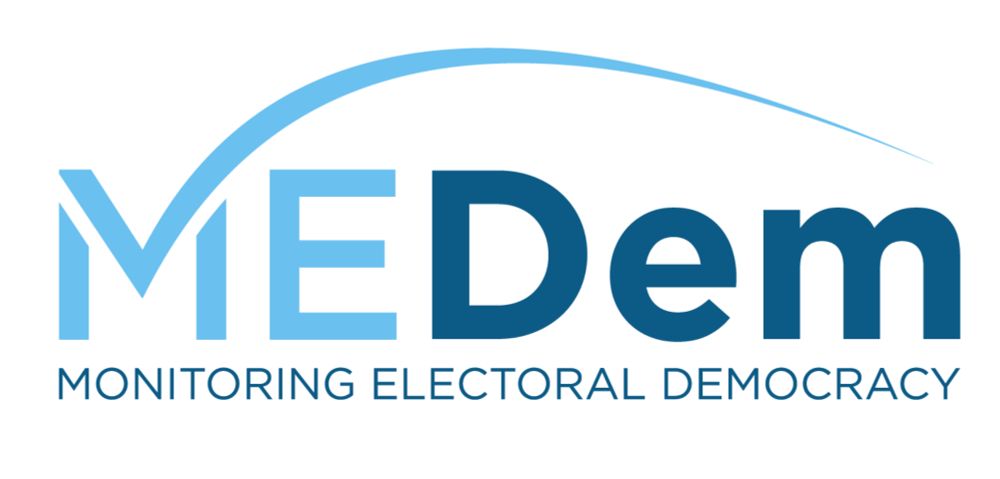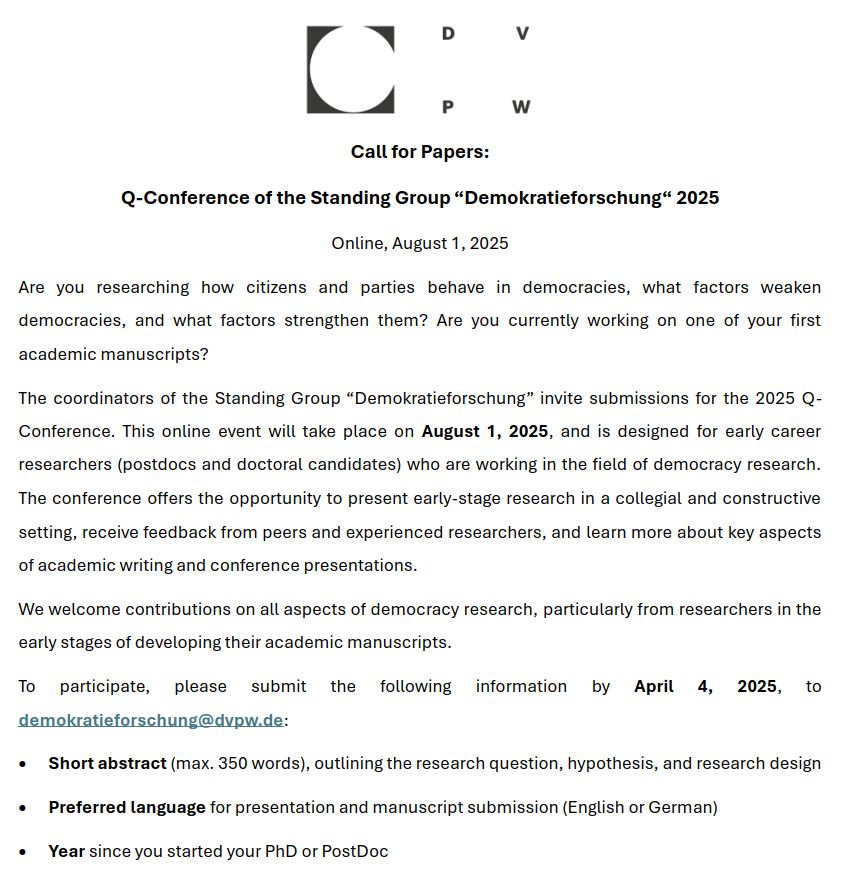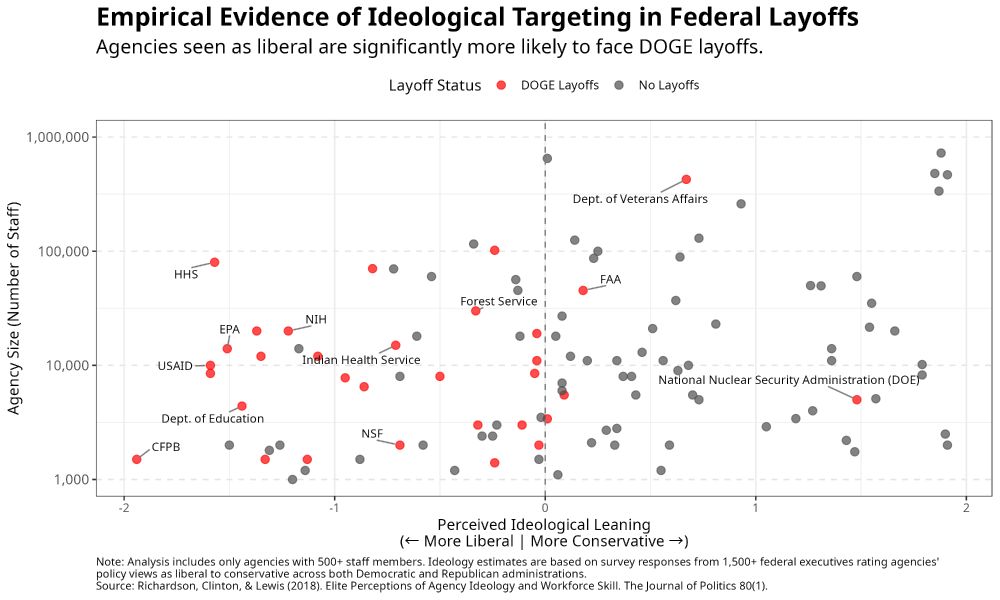Lea Kaftan
@dielea.bsky.social
540 followers
430 following
37 posts
Big fan of democracy, political and data science. Part of
MEDem (medem.eu) and GESIS. @[email protected]
Posts
Media
Videos
Starter Packs
Reposted by Lea Kaftan
Lea Kaftan
@dielea.bsky.social
· Aug 22
Lea Kaftan
@dielea.bsky.social
· Aug 22
Reposted by Lea Kaftan
Reposted by Lea Kaftan
Reposted by Lea Kaftan
MEDem
@medem.bsky.social
· Apr 10

MEDem has applied for ESFRI Roadmap 2026: Shaping the Future of European Democracy Research - Monitoring Electoral Democracy
MEDem has applied for inclusion on the ESFRI Roadmap 2026: Shaping the Future of European Democracy Research On April 8, 2025, MEDem (Monitoring Electoral Democracy) took a major next step toward shap...
www.medem.eu
Reposted by Lea Kaftan
Reposted by Lea Kaftan
GESIS Training
@gesistraining.bsky.social
· Mar 27
Lea Kaftan
@dielea.bsky.social
· Mar 19
Lea Kaftan
@dielea.bsky.social
· Mar 19
HarDIS - Harmony in the Democratic Ideological Space | OSCARS
In today’s democracies, the relationship between political parties and voters plays a critical role in shaping political outcomes. However, research on this interaction, including party responsiveness...
oscars-project.eu
Reposted by Lea Kaftan
Lea Kaftan
@dielea.bsky.social
· Feb 26
Lea Kaftan
@dielea.bsky.social
· Feb 21
Reposted by Lea Kaftan
Reposted by Lea Kaftan
Sarah de Lange
@sldelange.bsky.social
· Feb 21
Reposted by Lea Kaftan
Reposted by Lea Kaftan
Katrin Weller
@kwelle.bsky.social
· Feb 20
Wissenschaftliche*n Mitarbeiter*in Community Datentreuhand
GESIS – Leibniz-Institut für Sozialwissenschaften ist eine von Bund und Ländern finanzierte, international tätige sozialwissenschaftliche Einrichtung der Leibniz-Gemeinschaft.Vorbehaltlich der finalen...
www.hidden-professionals.de
Reposted by Lea Kaftan
Lea Kaftan
@dielea.bsky.social
· Feb 19










